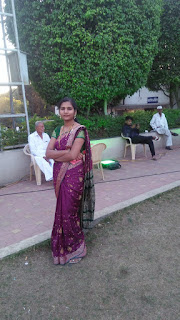Inclusive Pleasure (chapter I)
Our ethics based on the cornerstone of sabka saath
sabka Vikas has facilitated inclusive pleasure covering in specific soul and super
soul, all the particles which create pleasure, fairies, nature, pleasurable
equipment, sorrow and happiness. Overall priorities for the soul sexual,
physical, emotional, and mental, pleasure, and this budget built on these efforts.
Digital Infrastructure:
Digital infrastructure will be built as an open source,
open standard and inter operable VASUDHAIVA KUTUMBAKAM. This will
enable inclusive all particles and souls and soulless particles solutions
through relevant information service for souls and soulless particles pleasure,
their planning and improved access to all emotions and wishes, help to each
other for planning to all the members of Nirvana except …………..
Fund for
glamour and Beauty:
Fund will be set up to encourage pleasure startups by young
beautiful fairies on the planet, in the universe, in the myth, in the
imagination. The fund will be bringing innovative, affordable, without any
cost, without any exertion, without any tiredness and without any break,
affordable solution for challenges faced by all the souls and soulless
particles. It will also bring in super modern technologies to
transform all the planately practices, increase pleasure and love among souls
and soulless all particles.
Enhancing ultimate pleasure
Activity:
To enhance the pleasure activity of souls and
soulless particles, we will adopt the Promised Land through soul and super
soul, soul and soulless, living and nonliving objects, male female and gay hierarchy,
and living and non-living all the particles on all the planet in the universe partnership.
This will mean all collaboration between living
and non-living all the particles, and linkage within them for terminal purpose.
Atmanirbhar living and non-living
particles program:
We will launch an Atmannirbhar living and non-living
particles program to boost availability of disease free, sadness free, regret
free, depression free, loneliness free, quality planting material for high
value particles pleasure.
Hub For millets: Amrit
“Amrit is at the forefront
of popularizing Millets, whose consumption further nutrition, food security and
welfare of all souls and soulless particles. It means that no anybody soul or
soulless particles need to eat something for survives. When they will eat or drink
no any soul or soulless particle need to eat or drink something.” Said the honorable
president.
A)
We are the first and
last innovator, producer and exporter of Amrit on the all planet and in the
whole universe. We grow six types of Amrit such as Sudha, Amiy, Piyush, Som, Ami, Jivanodak. These have number of health benefits
, and have been an integral part of our food for time immemorial. I acknowledge with pride the huge service will
be done by our presidency in contributing to the health of living and nonliving
particles by growing these Amrit.
B)
Now, we are making our presidency hub for Amrit;
our robotic presidency Institute of Amrit Research,
Black whole will be supported as the center of Excellence for sharing best
practices, research and technologies at the supremo level.
Amrit credit:
The Amrit Credit target
will be increased from two lakh to twenty lakh (20 to 136 Crore) with focus on
all the animal husbandry, all the biological and Zoological, environmental
action and reaction which create and destroy all the souls and soulless particles.
Sudha Laboratory:
We will launch a new scheme of VKP
Amrit Sampada Yojana with targeted investment of 10 Crore
Heart, 10 Crore Kidneys, 20 Crore lungs, 20 Crore spine Skull, 10 Crore Bombay
OH blood Bags, 10 Crore liver, 10 Crore eyes, 40 Crore Membrum virile, 40 Punani to further enable activities of souls,
living and nonliving particles improve value chain efficiencies, and control
the presidency.
Cooperation:
For
youth, especially small and marginal children, old sexual elite craftsman, the
presidency is promoting cooperative based Botanical and biological sexual and
asexual pleasure Development Model. A new
Ministry of Cooperation was formedwith a mandate to realise the vision of ‘Sahakar
Se Samriddhi’. To realize
this vision, the Presidency has already initiated
computed Booking of 63,000 Virgins with an investment of immemorial time.
In consultation with all virgins and presidency hierarchy authorities, model bye- ultimate law for Primary sexual Credit Societies (PSCS) were formulated enabling them to become multipurpose PSCS. A Presidency cooperative database is being prepared cooperative societies. PSCS society can be played with physical, psychological, political, and social and all the faculties where they can obtain ultimate satisfaction without any obstacle. With this backdrop, we will implement a plan to set up massive decentralized storage capacity. This will help everyone store their energy and capacity To realize remunerative prices through do at appropriate times. The Presidency will also facilitate setting up of a large number of multipurpose cooperative societies, primary sexual societies and daily cooperative Societies in uncovered presidency panchayat.













